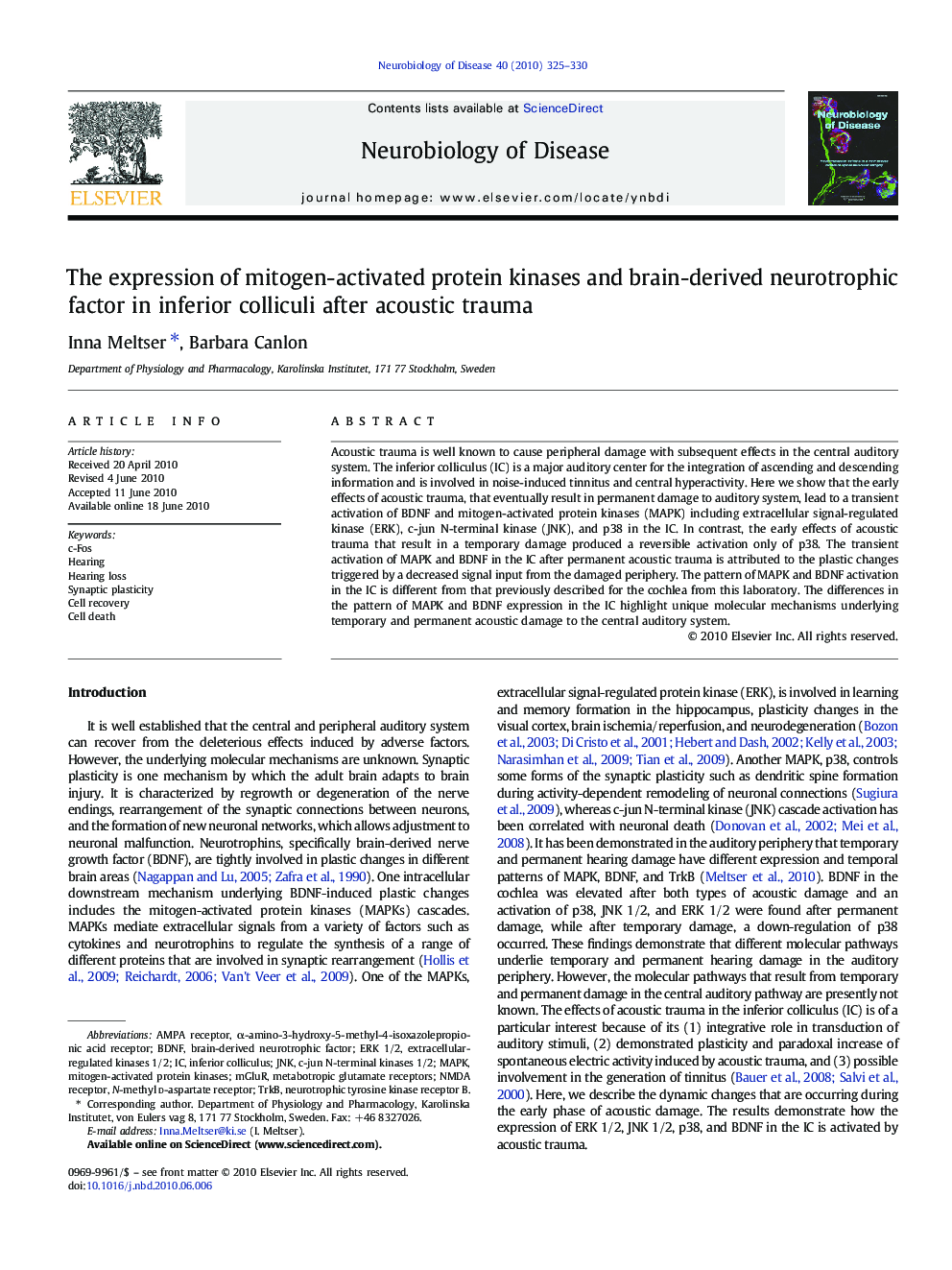| Article ID | Journal | Published Year | Pages | File Type |
|---|---|---|---|---|
| 3069857 | Neurobiology of Disease | 2010 | 6 Pages |
Acoustic trauma is well known to cause peripheral damage with subsequent effects in the central auditory system. The inferior colliculus (IC) is a major auditory center for the integration of ascending and descending information and is involved in noise-induced tinnitus and central hyperactivity. Here we show that the early effects of acoustic trauma, that eventually result in permanent damage to auditory system, lead to a transient activation of BDNF and mitogen-activated protein kinases (MAPK) including extracellular signal-regulated kinase (ERK), c-jun N-terminal kinase (JNK), and p38 in the IC. In contrast, the early effects of acoustic trauma that result in a temporary damage produced a reversible activation only of p38. The transient activation of MAPK and BDNF in the IC after permanent acoustic trauma is attributed to the plastic changes triggered by a decreased signal input from the damaged periphery. The pattern of MAPK and BDNF activation in the IC is different from that previously described for the cochlea from this laboratory. The differences in the pattern of MAPK and BDNF expression in the IC highlight unique molecular mechanisms underlying temporary and permanent acoustic damage to the central auditory system.
